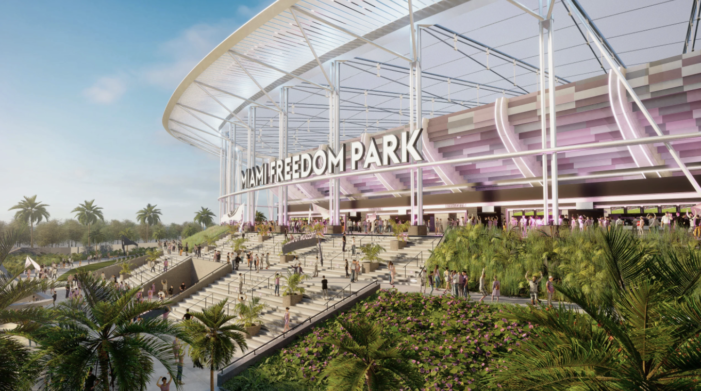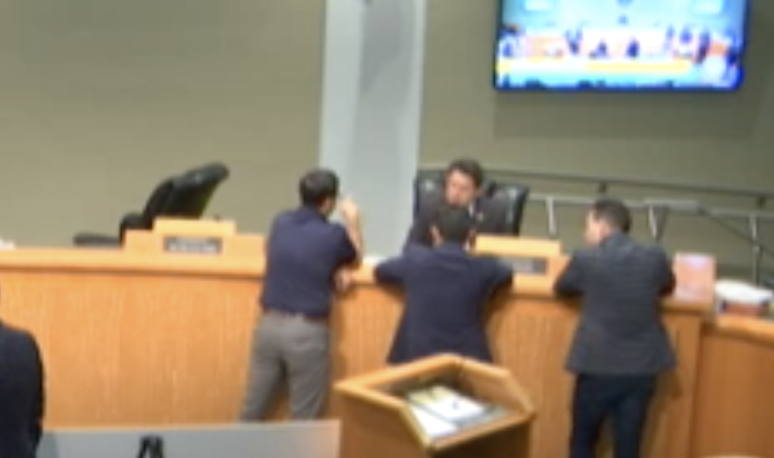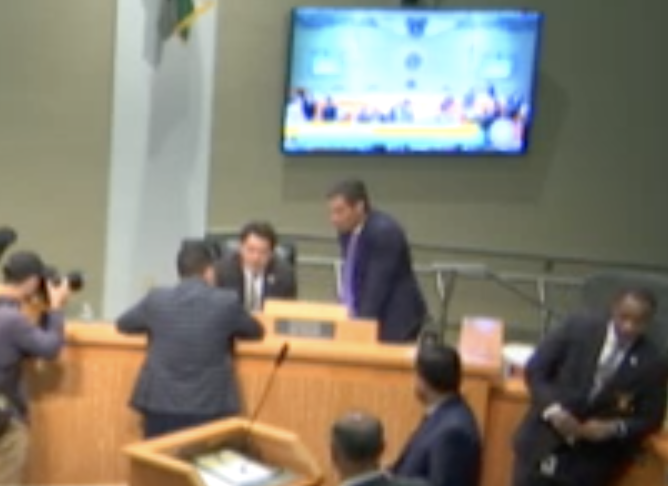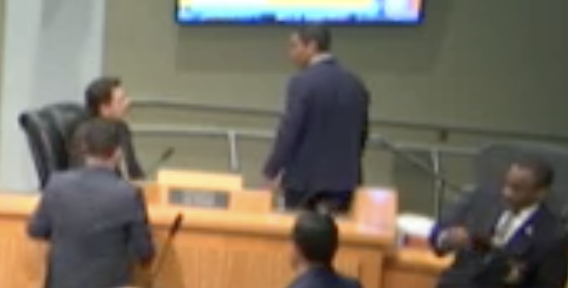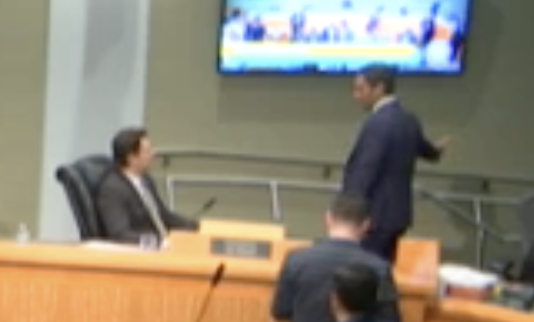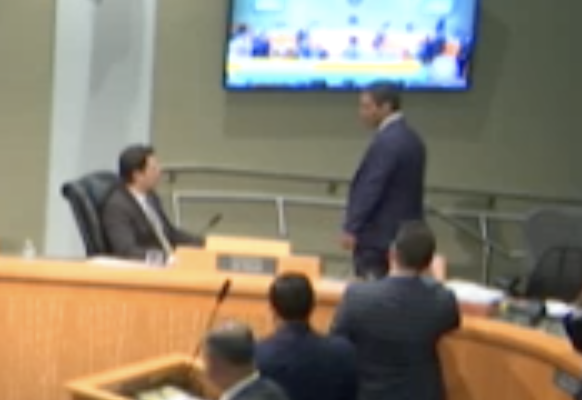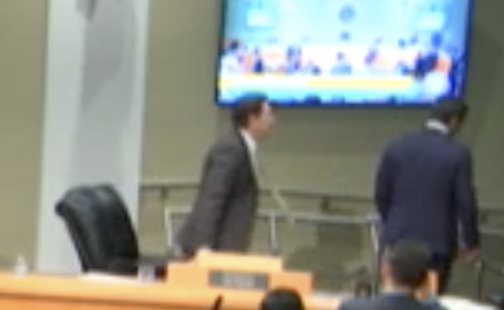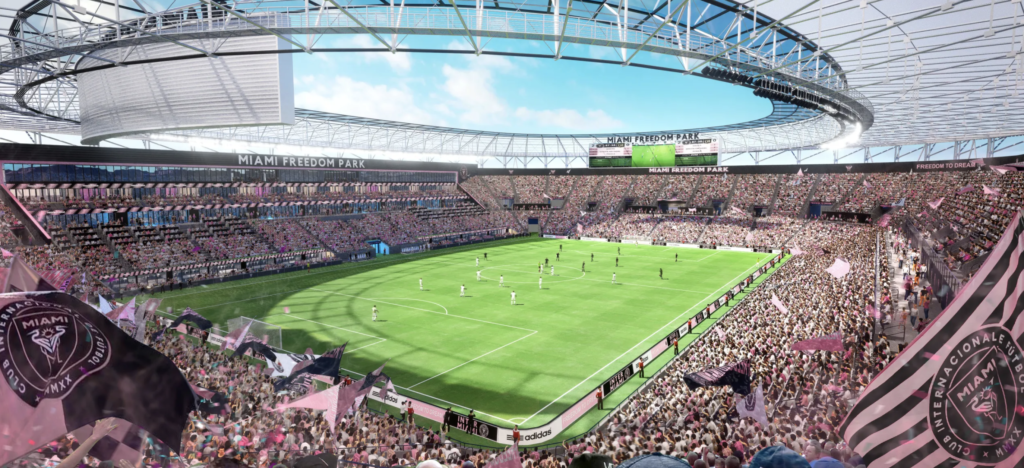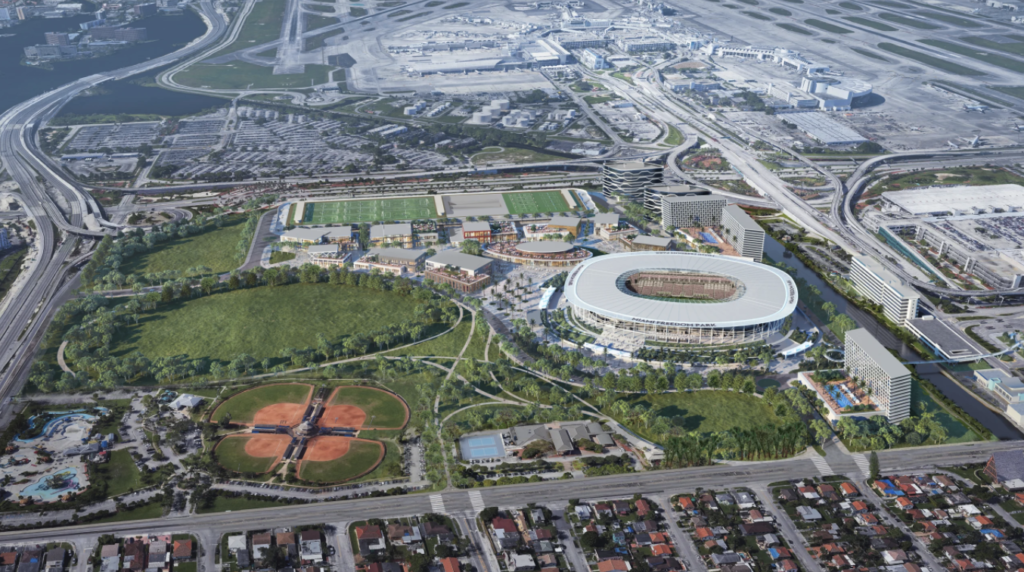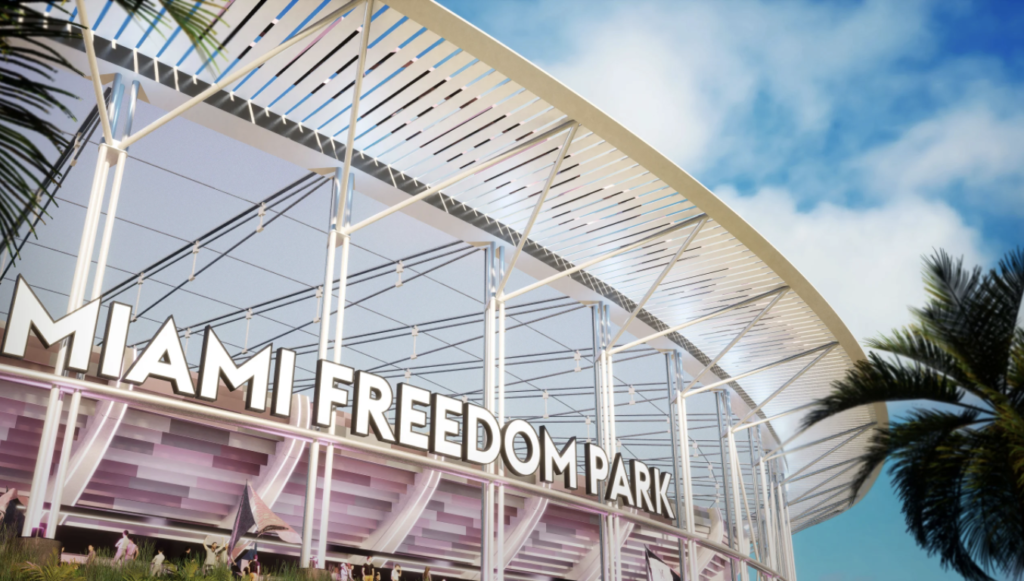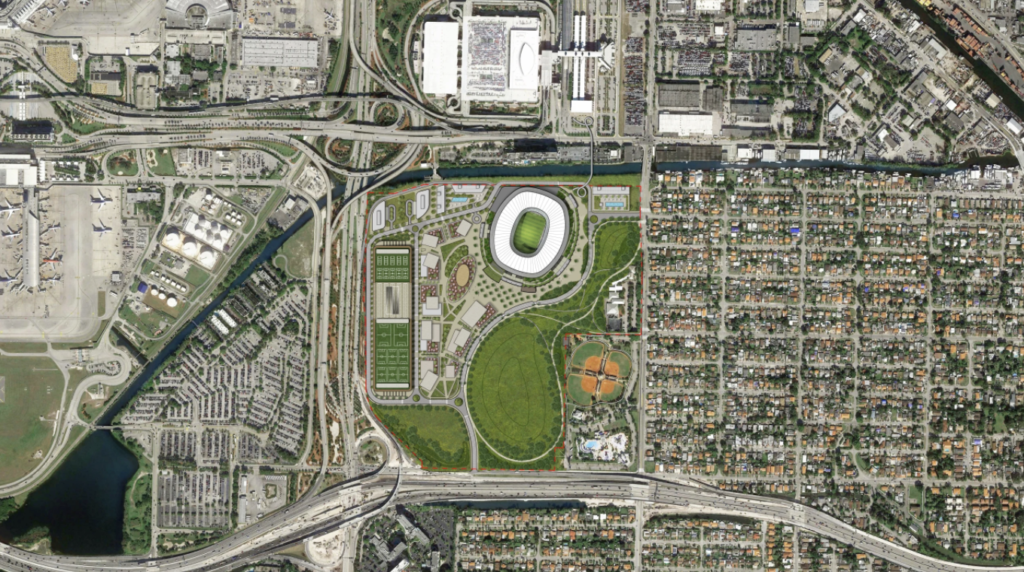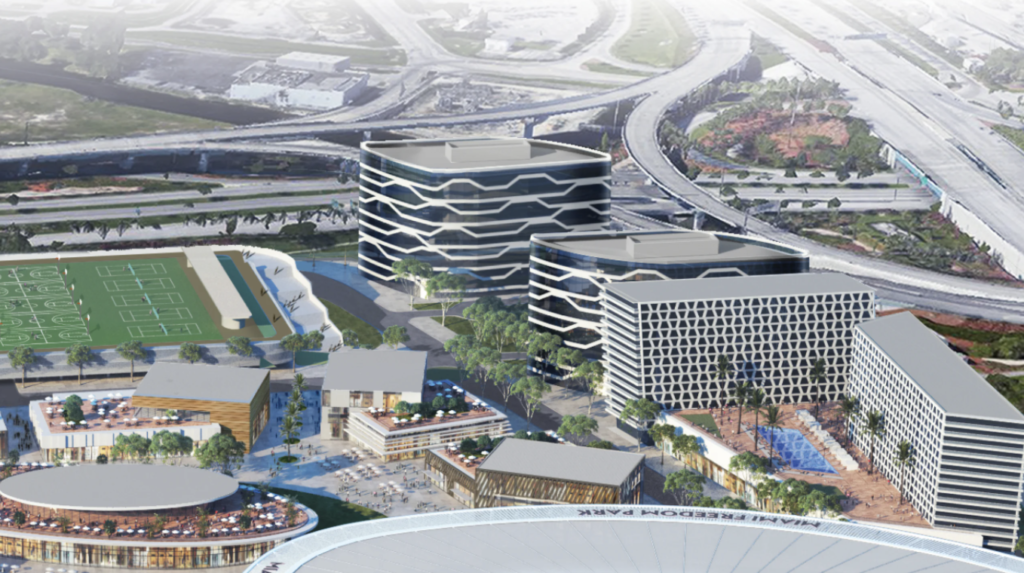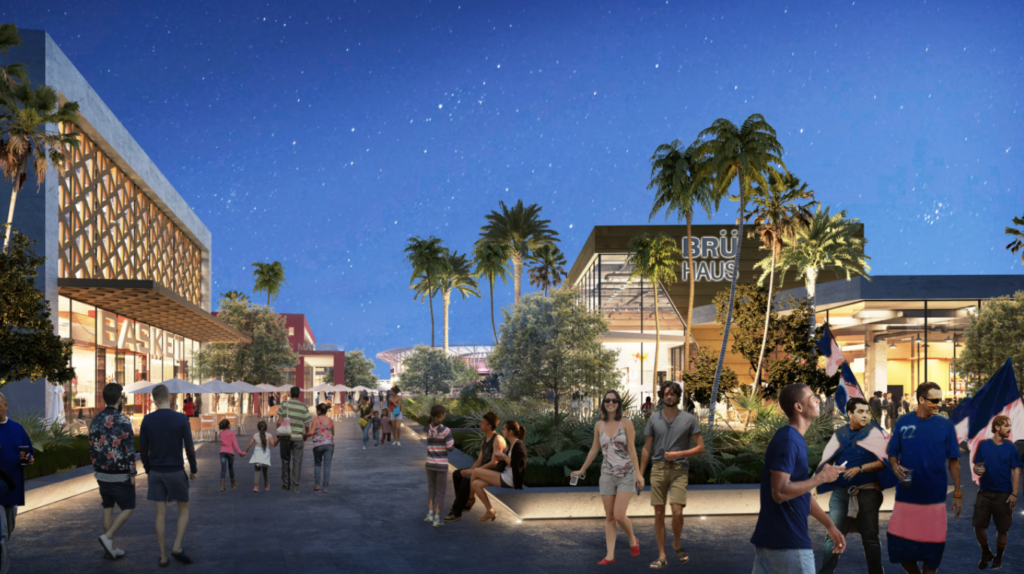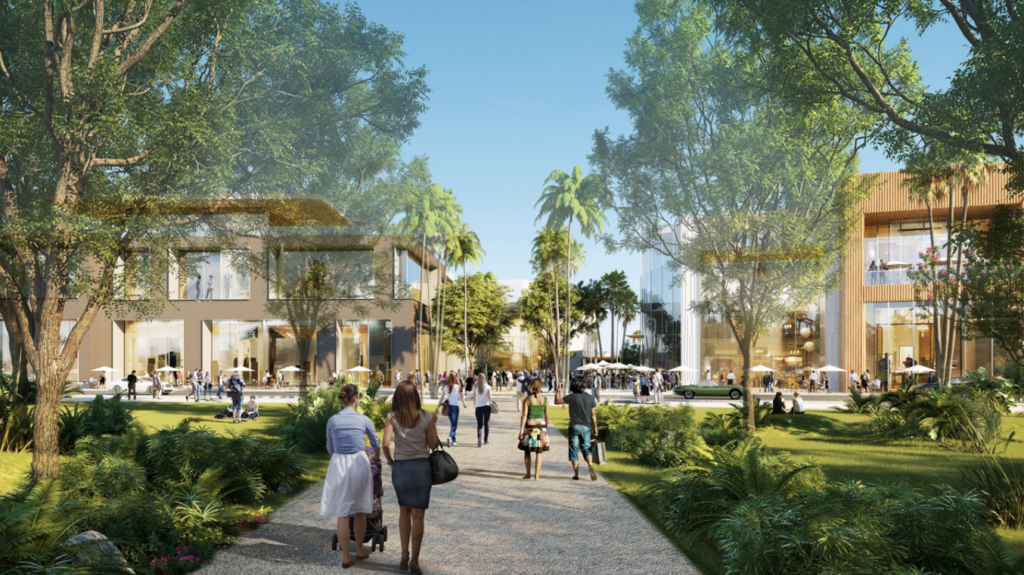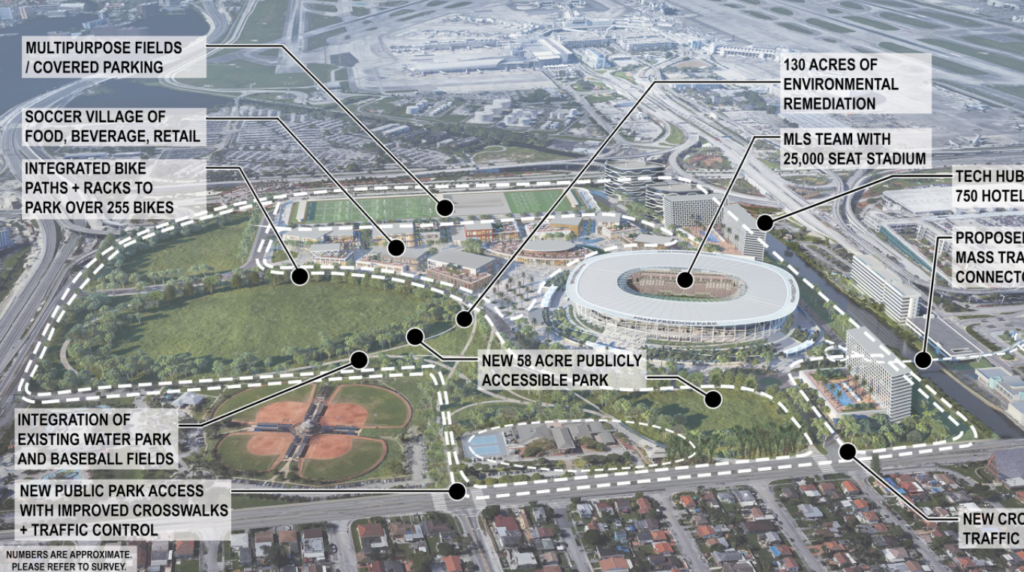After very little public comment, a pep talk about trust and courage from the mayor, a long and fiery homeland-type sales pitch from the developer, hours of haggling by Miami city commissioners and what looked like near fisticuffs between two of the electeds, the owners of the InterMiami soccer team got the green light to build the controversial Miami Freedom Park, a massive real estate complex disguised as a soccer stadium on the largest piece of public land in the city.
City Hall was packed mostly with attorneys and team boosters who seemed summoned to the meeting by the proponents, who called this an “unprecedented” deal. (And didn’t we hear that about the multiple Joe Robbie stadium proposals?) There were a few speakers opposed to the deal, but not in the numbers expected. The room erupted in cheers and applause after the agreement — modified “on the fly” — was approved 4-1, with Commissioner Manolo Reyes voting no.
Read related: Miami Freedom Park deal looms as commissioners bargain for their votes
In the end, Commissioner Ken Russell was, indeed, the swing vote, as many expected. But it seemed to roll out in slo mo and only after some intervention (read: prodding) from Mayor Francis Suarez, who made a rare public appearance — we know what’s important to him and what’s not — acting more like a lobbyist for the developers than a representative of the residents. Baby X dragged Russell away from the dais during a recess to have a few words and then, voilá, Ken was a yes when he returned.
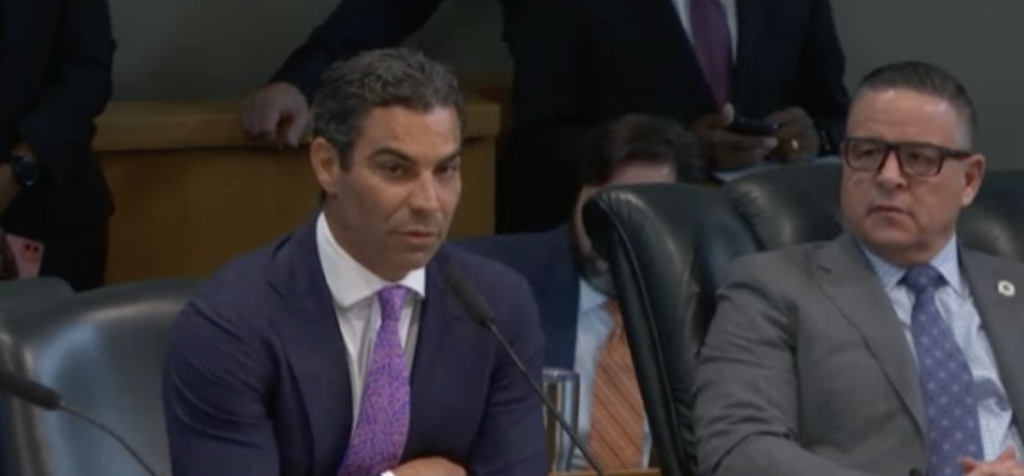
Russell was a no early in the day. He told Ladra earlier this week that he was not there with the way the deal had been presented. His main issue was the no net loss of park space, which he repeated again at the public meeting Thursday. He said he wanted some of the $20 million the developers were providing for parks to go to the 116 acres on Virginia Key.
He interrupted the first attempt at a vote by shouting that he was a ‘no’.
“How clear do I need to be? It’s going to be a 2-3 [vote],” Russell said, rejecting the notion that he had gotten what he wanted. “I’ve been trying to be heard for the last hour and I continue to be denied.”
That caused Commissioner Alex Diaz de la Portilla — who City Hall sources say had drank his lunch — to lash out. Let’s reconsider the Baywalk vote, he said (read: threatened), referring to the Biscayne bayside linear park that Russell got support for in the last meeting and for which $5 million of the developers’ parks money payoff.
“I can find other ways to get $5 million for the Baywalk. This is what the whole city needs,” Russell said, and it appeared that Commissioner Joe Carollo was going to interrupt but Russell didn’t let him.
“You spoke earlier about congeniality on this dais. There is no congeniality on this dais. You spoke about trust on this dais. There is no trust on this dais,” Russell said. “There is transaction. There is power. There is ego. The personal attacks that you all have leveled against me.
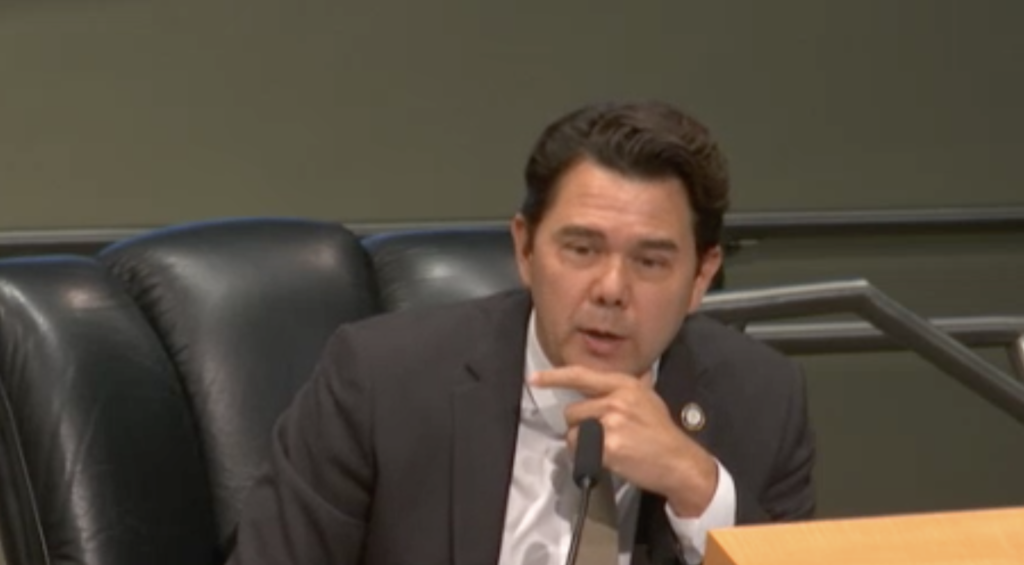
“I’m here despite the fights… because I believe this project is good for the city. And I won’t let it go until it’s correct. But you won’t let me get it there,” he said, basically talking about the funding for the no net loss parks. Diaz de la Portilla said he wanted to control the $20 million the developers were giving to the city for parks because the project is in his district.
Read related: Marlins Park’s David Samson: Miami Freedom Park is a ‘billion dollar heist’
“If it’s going to impact District 1, I want $20 million in District one. That’s the conversation I had with both of you on Saturday at your home,” Diaz de la Portilla said, and Ladra is not sure who he was talking to. If he was talking to Mas, it would show that there was some inside dealing going on out of the public’s eye. If he was talking to other commissioners, it would be a violation of the state’s Government in the Sunshine laws.
ADLP was under the influence, after all, so it could have been a slip.
He also went on another rail against “the rich people” in District — he is still mad at them for opposing the redistricting that cut Coconut Grove in three — and said that he would share the funds with Carollo and Commission Chair Christine King, but because they each had parks in their districts that bordered his. He gave his word that he would share the wealth.
“If I had a nickel for every time you broke your word, I would be able to fund the Baywalk myself,” Russell brilliantly shot off, sparking an argument between the two that wouldn’t end until King called for a recess. It almost looked like they were going to get into a fistfight.
During that break, as people milled about and talked about what was going on and wondering what Diaz de la Portilla had been drinking — hope it’s not Russian vodka — Mayor Suarez went up to Russell and was able to pull him away from the dais for a few words. They must have been very good, key words, because when they came back after recess, Russell was ready to vote yes — even though not much had changed.
Read related: Premature and postponed: Miami Freedom Park deal not ready for vote
Already earlier in the process, the commissioners had asked for several concessions or changes and improvements to the agreement:
- Carollo asked for $4.3 million in base rent rather than $3.6 million that was offered and that they talk to the University of Miami about hosting Hurricane football games.
- Diaz de la Portilla said he wanted 6% of gross retail instead of 5% — but it is unclear if he was talking about team merchandise or everything.
- Russell — who got them to agree three years ago to a $15-an-hour living wage — asked them to raise that up to $18 an hour, because $15 will be minimum wage by then anyway.
- King asked that there be minority and local hiring preferences as well as an effort to reach out to felons and get District 5 a “seat at the table,” whatever that means and however that can be quantified.
- Everyone wants the new appraisals to be done on the “clean” version of the land, or what it would be worth after the decontamination.
Mas indicated that he would be amenable to the changes and requests. The group has 90 days to come back with a plan of how they will address each of the issues brought up, including the no net loss park space requirement.
In a quick press conference after the late night vote, Mas told reporters that, as a native son he was proud of this moment and that he always knew the commission would vote his way.
“No matter how difficult, how long, how frustrating, good days and bad days, I always knew that this would happen, because I believe in our city and I believe in dreaming,” Mas said. “Today a dream commences of taking a site I played baseball on as a young man and we’re going to transform that into the centerpiece of futbol in the world.”
Suarez, another native son, said it was his proudest moment as mayor, which is really kind of sad, and that he was honored to serve with this commission, which is even sadder.
“This is a transformational moment for our city. This will put us once again on the world stage,” he said, adding that it sent a message that Miami would be ready to host a World Cup in 2026. “We not only deserve that, we should be the headquarters for FIFA and the World Cup in 2026.”
But there’s still a lot to be done if this project is going to get off the ground, let alone completed by 2026. That’s if there are no legal challenges, and there could be.
Read related: Miami Freedom Park vote is delayed again — pick a reason, any reason
The plan still needs approval to change zoning and land use from park space to commercial and Federal Aviation Administration approval. The remediation of the contamination in the ground may cost more than the $37 million price tag bantered about — on which, by the way, the “100% privately funded” deal is getting a $16 million “contamination credit.” Carollo’s idea.
The end result is what Suarez excitedly called “the best sports deal in the history of this country.
If you like what you read in Political Cortadito, please take a moment to make a donation so Ladra can keep sniffing out the political shenanigans. Thank you.
“This was a very difficult, difficult deal to do. It took a long time. It took a lot of hours. It was not easy and there were very, very difficult moments,” Suarez said. “Moments when, frankly, it was hard to sse the light at the end of the tunnel.”
One would think he was talking about COVID or something.
It has taken more than three years since the idea was planted, more than two years since the referendum that proponents keep calling a mandate and the first steps haven’t even been taken. How much does anyone want to bet there won’t be a World Cup in South Florida in 2026 unless it’s at the Fort Lauderdale stadium where the team plays now?
And where Mas and retired soccer star and team co-owner David Beckham have been accused of breaking promises they made to build recreational facilities and a public park — with walking trails, sports fields, a playground and a dog park — in exchange for the 50-year rent deal at Lockhart Stadium.

